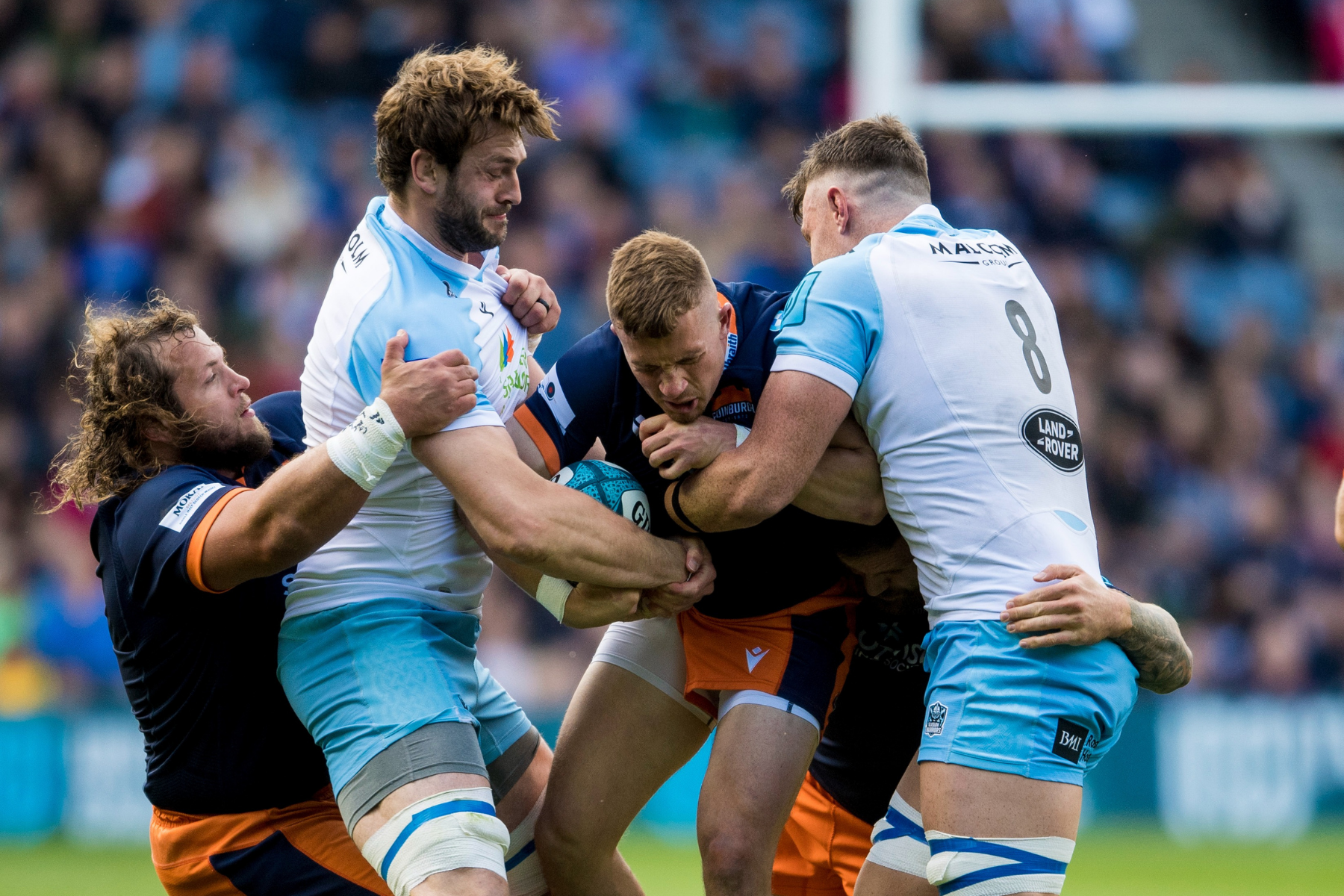
IT won’t make me popular in rugby circles in Edinburgh and Glasgow, but I simply can’t see either of our professional sides winning their URC quarter-final play-off matches this weekend, and I am not going to bother talking up their chances.
Glasgow Warriors will face the very wounded, and thus very dangerous, Leinster and though they did not prevail against La Rochelle in the Champions Cup final, the Irish team were a class above anything that Glasgow has produced this season. I expect the scoreline to be similar to the clash at Scotstoun early in the season, when Leinster won comfortably by 31-15. The main lesson from that match for the Warriors is not to give Leinster early chances, because they’ll take them.
Edinburgh’s long trip to South Africa to face DHL Stormers in Cape Town is the first time the Scottish club will have played there. They drew with Stormers at home back in October, and that should give some confidence, but though this might be a tight contest, the South Africans very much have the edge on their opponents and again I can’t see Edinburgh making the semi-finals.
If either Scottish side returns with a victory, I will consider it one of the greatest achievements by a Scottish club side in the professional era – perhaps even the greatest, such is the scale of the task facing Edinburgh and the Warriors on Saturday.
Let’s hope both matches last a full 80 minutes with none of the time wasting that has recently been brought into focus by two incidents which, though technically legitimate, were very much not in the spirit of the game.
The first was the disgusting activities of England and Argentina – both equally to blame – in the pool stage match of the World Sevens series in Toulouse. If you haven’t seen it just Google and watch Will Homer breaking free to race upfield and then stand for two minutes and 23 seconds unchallenged by any of the six Argentinians on the pitch at the time. Homer ignored Scottish referee Finlay Brown’s ‘suggestions’ that he score, but eventually he dotted the ball down when an Argentinian player walked towards him, with the scoreline meaning that both England and Argentina progressed at the expense of Canada.
A lot of people including Nigel Owen have suggested that Finlay Brown was at fault for not compelling Homer to touch down, and the laws on sportsmanship and wasting time would suggest so. But what was Brown supposed to do in the unique circumstances? Penalise Homer for not scoring, or Argentina for not contesting? Brown’s progress as a referee should not be held back as a result of this bizarre event, not least because World Rugby decided to just ignore the controversy.
It is up to the authorities to act. Time wasting before scoring has always been part of Sevens culture and in this professional ‘entertainment’ era that can no longer be allowed because it is cheating of a kind – cheating the spectators of the potential for more play. I would suggest a limit of 10 seconds for players to score once they have crossed the try line or are in a scoring position with a penalty against them if they do not comply.
Time wasting also happened in the Champions Cup Final when La Rochelle beat Leinster with the last play of a quite magnificent match. Referee Wayne Barnes reviewed Arthur Retiere’s try, stopping the clock at 78m 50secs. Barnes confirmed the try had been scored and Ihaia West stepped up to take the conversion.
World Rugby’s laws are explicit and it is law 8.7.d which applies. Unlike a penalty when the kicker has just a minute from nominating to kick to taking the kick at goal, in a conversion the kicker must take “the kick within 90 seconds (playing time) from the time the try was awarded, even if the ball rolls over and has to be placed again” with the kick disallowed if the time limit is exceeded.
Somebody on the French side knew what they were doing, probably West himself. He just delayed taking the kick until the clock went to one second before time and then hoofed it over. One telly pundit had confidently predicted there would be time for more play as West had only a minute to take the kick, but he was plain wrong, as the La Rochelle player did exactly the right thing by the law.
Nevertheless his delay in kicking, while within the laws, prevented the excitement of a Leinster re-start and that’s my point – there is simply too much wasted time at kicks, penalties and conversions in the modern game and you only need to think of Owen Farrell’s histrionics to see what that does to a match.
Scotland also suffered in the 2019 World Cup when Yu Tamura took a whopping 96 seconds to land one penalty. And don’t start me on Johnny Sexton…
I understand players need time to compose themselves for a kick at goal, but it would be a simple thing for World Rugby to insist on a highly visible clock counting down the permitted time for a kick at all professional level games. After all, they already use it in Top 14 rugby in France.







